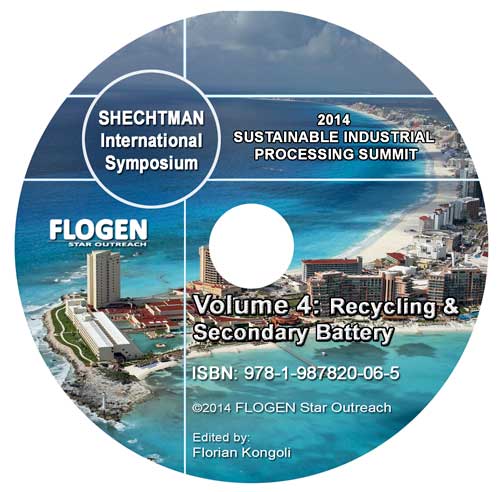2014-Sustainable Industrial Processing Summit
SIPS 2014 Volume 7: Energy Production, Environmental & Multiscale
| Editors: | Kongoli F |
| Publisher: | Flogen Star OUTREACH |
| Publication date: | 20 December 2014 |
| Pages: | 528 pages |
| ISBN: | 978-1-987820-09-6 |
| ISSN: | 2291-1227 (Metals and Materials Processing in a Clean Environment Series) |

CD shopping page
Microbial Reservoir Souring
Abdollah Esmaeili1;1UNIVERSITI TEKNOLOGI PETRONAS (UTP), Omidieh, Iran (Islamic Republic of Iran);
Type of Paper: Regular
Id Paper: 105
Topic: 15
Abstract:
In oil and gas exploration and production operations worldwide, injecting water into a reservoir to provide pressure support and sweep efficiency is essential to maximize economic levels of oil recovery. If the bacterial activity associated with water injection is not controlled, hydrogen sulphide (H2S) is generated which ultimately 'sours' the reservoir and the oil and gas produced. Microbial reservoir souring can decrease the value of the oil and gas asset, increase operational costs and, in the worst case, result in shut-in of the well due to materials incompatibility.
Generic computer-based predictive models currently exist which, although based on the same fundamental principles, take different approaches to assessing the level of H2S generation. Each model has its own strengths and weaknesses. The souring of normally sweet production systems is a significant problem. It can have implications in terms of reduced quality of produced hydrocarbons relative, the reduced productivity of wells and increased corrosivity of produced fluids. In cases where remedial action is not taken, it can also have implications related to the potential for sulfide stress cracking and selection of materials for down hole, flow lines and surface facilities. Therefore, it is important to be able to properly characterize field situations and make accurate recommendations for remedial actions in order to minimize the impact of souring and to prevent the manifestation of similar occurrences in other related field operations.
In an assessment of reservoir souring, field analysis provides an important technical basis for engineering decision making through their supporting scientific evidence. Such tests can yield useful information in determining the sources and the potential severity of souring and the selection and confirmation of successful remedial actions.